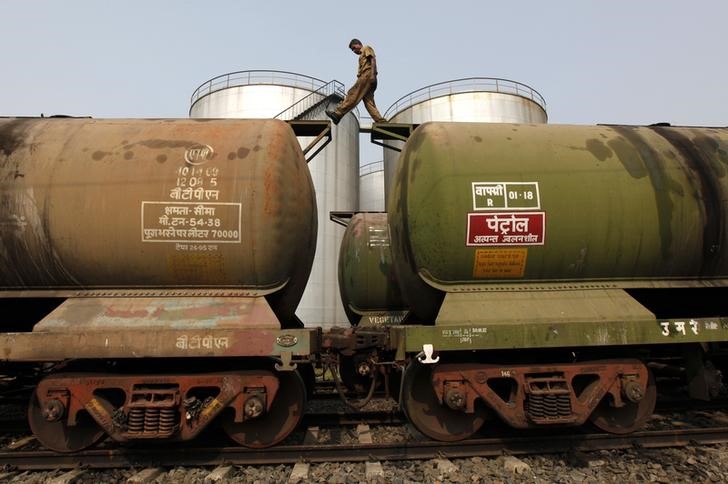(Bloomberg) -- The world’s fastest growing crude consumer has a warning for OPEC: Start reducing prices, or waning demand will mean a curb in purchases from the crude cartel.
At least that’s the suggestion from Sanjiv Singh, chairman of Indian Oil Corp., the country’s biggest refiner. If prices continue rising at the pace they’ve been gaining in the past month and a half, the South Asia nation’s consumers will likely see alternatives such as electric vehicles and gas as more cost effective, replacing 1 million barrels of the country’s daily oil use by 2025, he said.
“Demand cannot be seen in isolation to prices, especially for a price sensitive market like India,” Singh said. “You may not see an impact on demand in the short term, but in the long term, definitely it will have implications.”
Fears of a global supply crunch following outages from Libya and Venezuela to Canada have led to an almost 5 percent jump in oil since April. While the Organization of Petroleum Exporting Countries and its allies have agreed to boost curbs to alleviate tightness, concerns remain that the additional barrels won’t be enough to meet growing demand, spurring U.S. President Donald Trump to tweet a series of tirades against the cartel.
Singh says expectations that India’s oil consumption will grow to 10 million barrels a day by 2040, making it the fastest growing consumer worldwide, is based on the assumption that prices will be at $83 a barrel by 2025 and $113 by 2040. But with crude already near $80, it’s likely that the cost will be seen as too expensive, reducing demand in the next seven years, he said.
Vested Interests
“If instead of $83, prices reach $100 by 2025, then other forms of energy will become more competitive,” Singh said.
India has a vested interest in lower oil prices. With little of its own natural resources, the country imported about 1.6 billion barrels (220.43 million tons) of oil last year, or about 80 percent of its crude requirements, mostly from OPEC nations. Now with prices hitting fresh three-year highs and with Brent up about 36 percent since the start of last year when OPEC and allies including Russia began reducing production, the country has grown louder in its criticism over the cost of crude.
Indian Oil, also the nation’s biggest fuel retailer, has been preparing for alternatives to crude by expanding into natural gas, renewables and electricity to power vehicles. It’s building a liquefied natural gas import terminal in southern India, has about 202 megawatts of renewable energy capacity from solar and wind projects, and is testing India’s first hydrogen fuel cell-based bus with Tata Motors Ltd.
Stretching It
But arguing alternative energy is enough to help substitute 1 million barrels a day might be a bit of a stretch, says Abhishek Kumar, a senior energy analyst at Interfax Energy.
“India’s growing economy will propel its demand for gasoline and diesel, and it will be no mean feat to find alternatives,” Kumar said. Natural gas as a transport fuel “is unlikely to challenge the dominance of oil products till India becomes self-sufficient in natural gas production, which is at best a long-term prospect. Pressure is on OPEC to do more from key customers, including India.”
Singh says OPEC is aware of these threats.
“It’s not that they don’t realize,” Singh said. “We have told them, kindly don’t think growth will come only because everyone is projecting it. It is heavily linked with prices.”
(Adds India’s import dependency on crude oil in seventh paragraph.)
